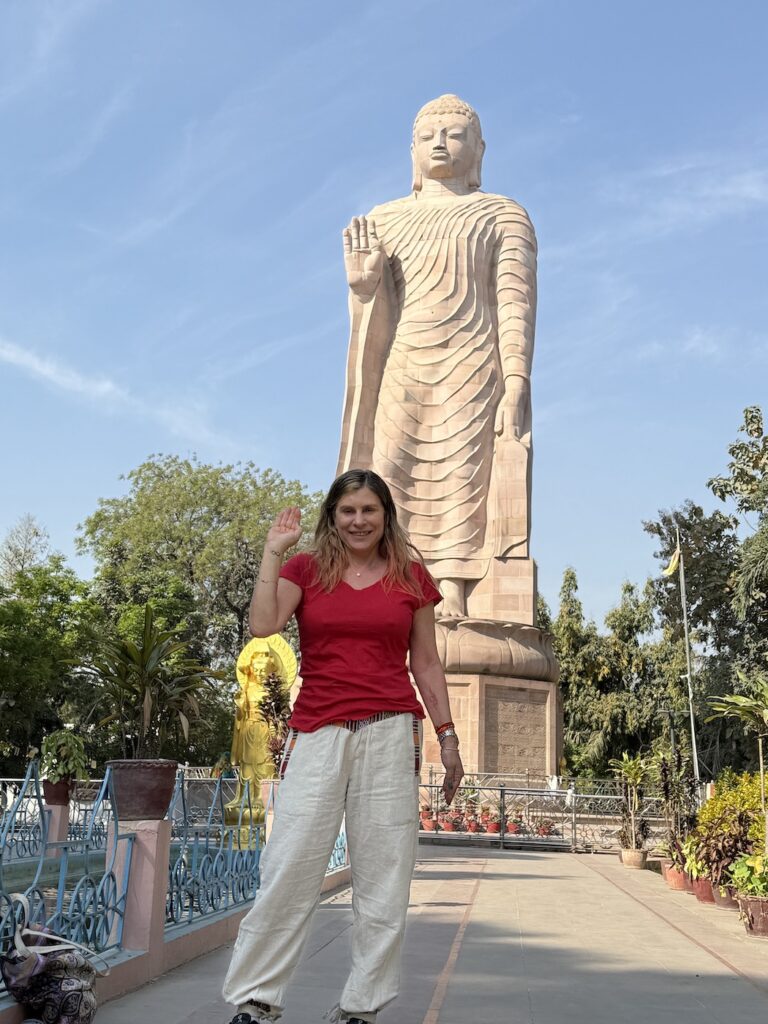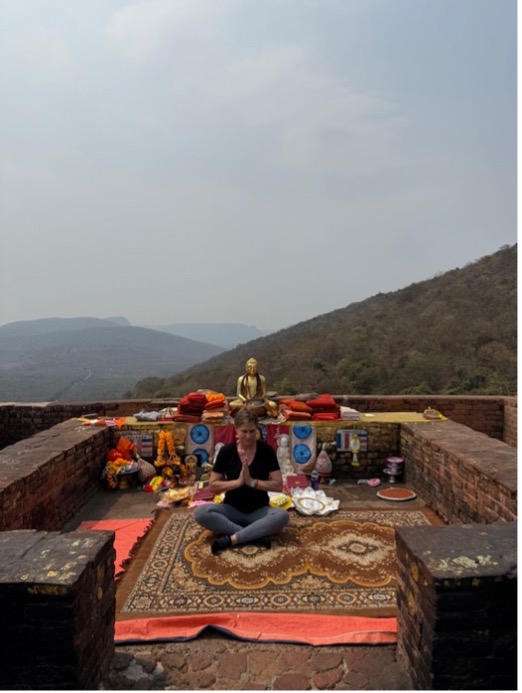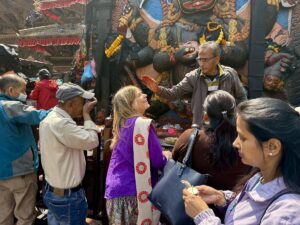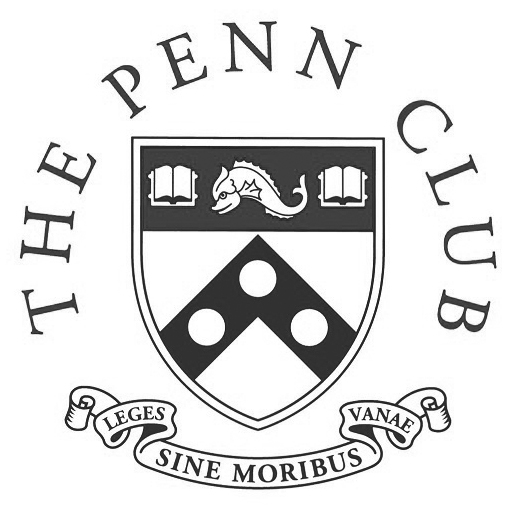Sacred Pilgrimage to India – March 2025
I have been to India twice before (northern Rajasthan and Southern India), but not since I started my “spiritual path” that began when I got sober in 2018.
I met a Vispassana Meditation Instructor when visiting a retreat in Palm Desert, CA in 2024, and when I heard she was offering a sacred Buddhism pilgrimage to the Himalayas in India, I immediately signed up! In February of 2025, I graduated from MMCTP – a two-year-long training to be a mindfulness meditation teacher and had launched my sound bath meditation practice in 2024. So, this journey was calling me!!
The group gathered in New Delhi on March 4th to start the journey. The 7 of us traveled together for 18 days, by plane, car, and bus to Buddhist, Hindu, and Sikh sites. We stayed in low-range hotels and started each day with yoga, chanting, and meditation. There were many highs and lows on this journey. When I left for India, I spoke to my new AA sponsor about how I was going to keep connected to my program. As I have over six years of continuous sobriety, we were less concerned with my desire to drink, but more about the dynamics of traveling with a small group of strangers. Was she right! From the onset, the leader treated me poorly, and there was a group member who was constantly putting me down, despite my efforts to be of service to her. There was another group member, who I thought was showing me compassion, but I found out later that she was talking about me behind my back. Thankfully, there were three other members, one who happened to be a member of AA, who made me feel seen and heard. At the same time, I was revisiting a romantic relationship – at times when I reached out to him, I was not acknowledged. So, there were many struggles. But there were also a lot of glimmers, a term a co-traveler introduced me to.
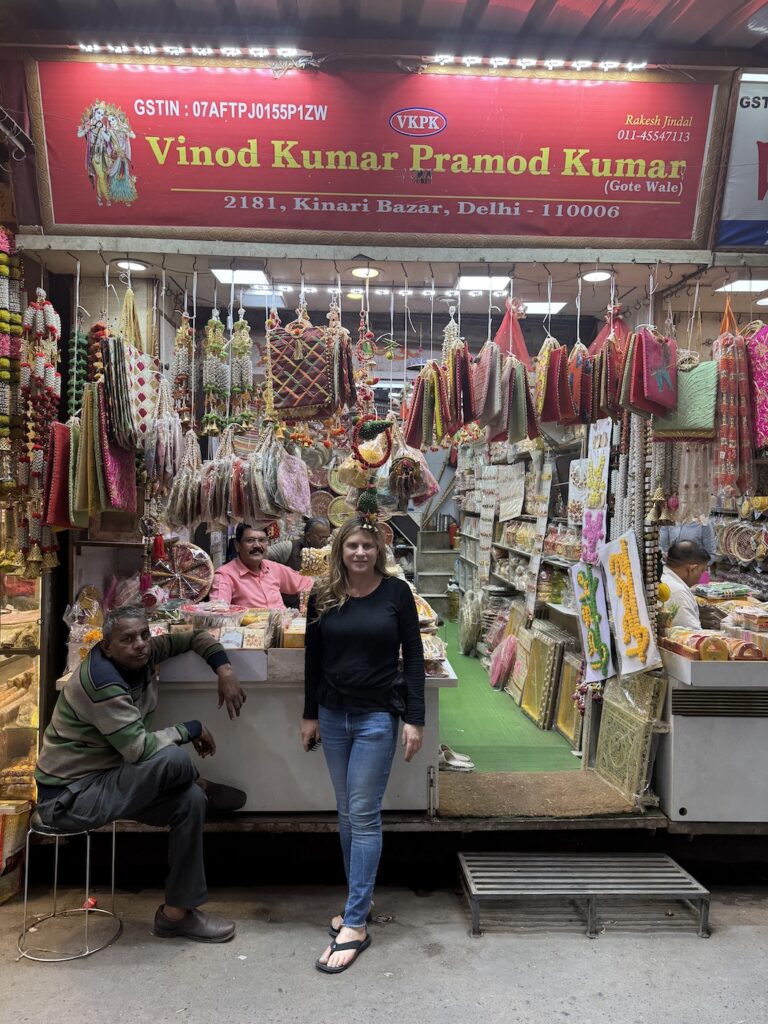
The Journey
The first stop was McLeod Ganj, which is the home of the Dalai Lama.
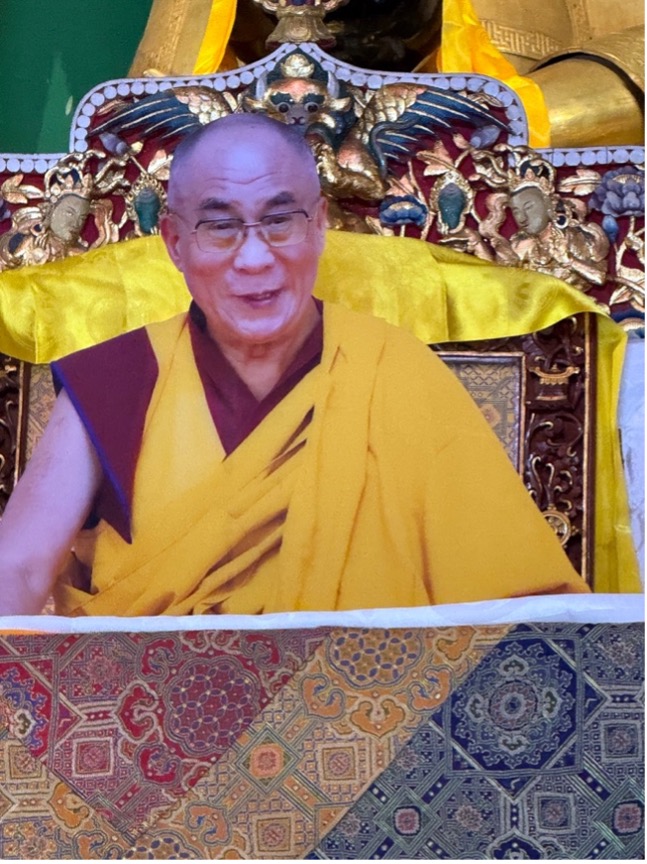
The next stop was Amritsar, where we visited The Golden Temple, also known as The Abode of God (Sikh temple). While this isn’t a Buddhist site, it was included as it is a big part of the Indian culture.
Next, we traveled to Varanasi, the sacred site on the Ganges River where the dead are cremated and ceremonies take place. Not only did we get to witness the ceremonies on the River, we also were able to participate in the magical Holi Festival.
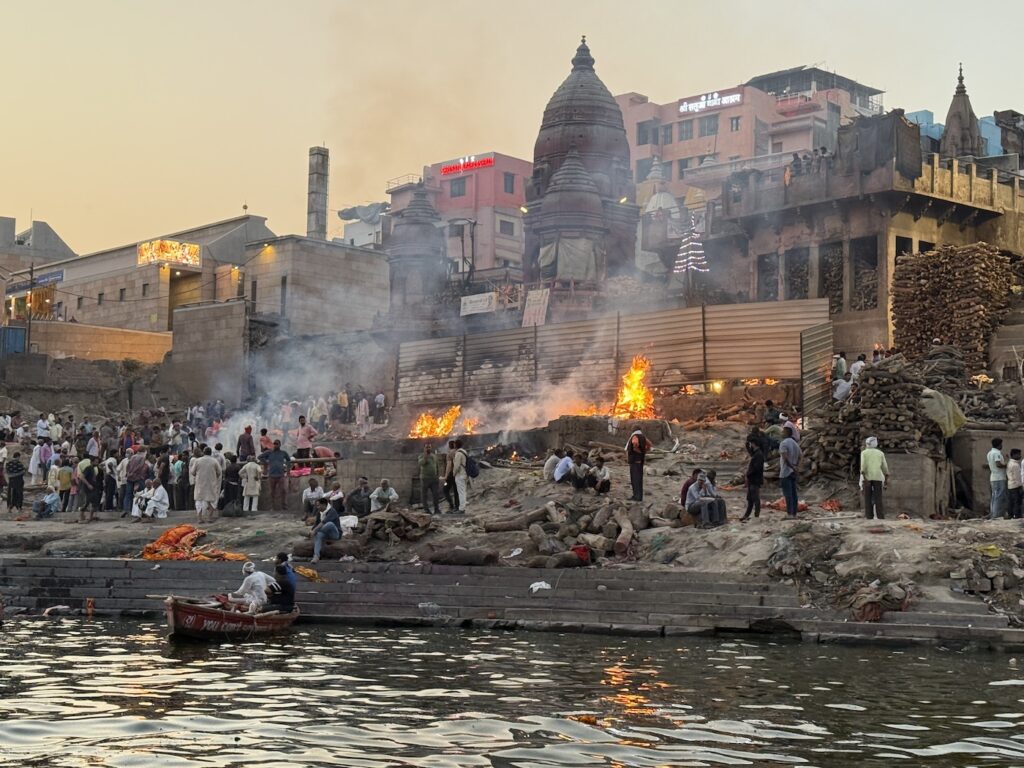
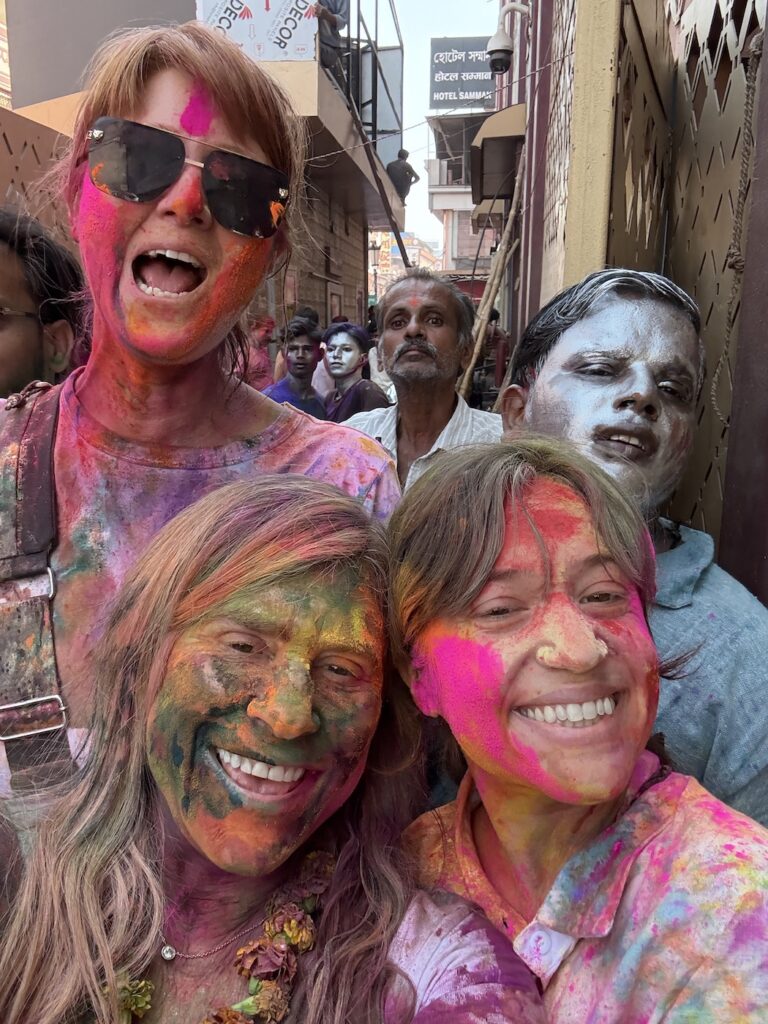
Next stop, the pastoral town of Sarnath, where the Buddha gave the first teaching of the Dharma.
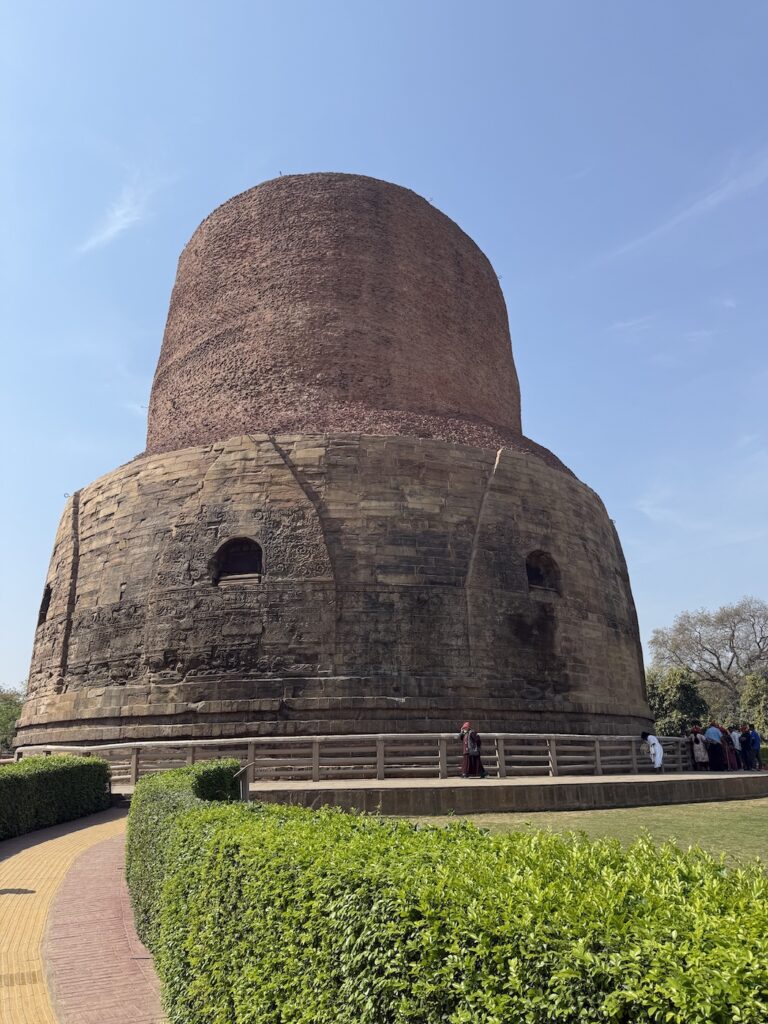
Our final stop was Bodh Gaya. It is the place where Gautama Buddha is said to have attained enlightenment (Pali: bodhi) under what became known as the Bodhi Tree.
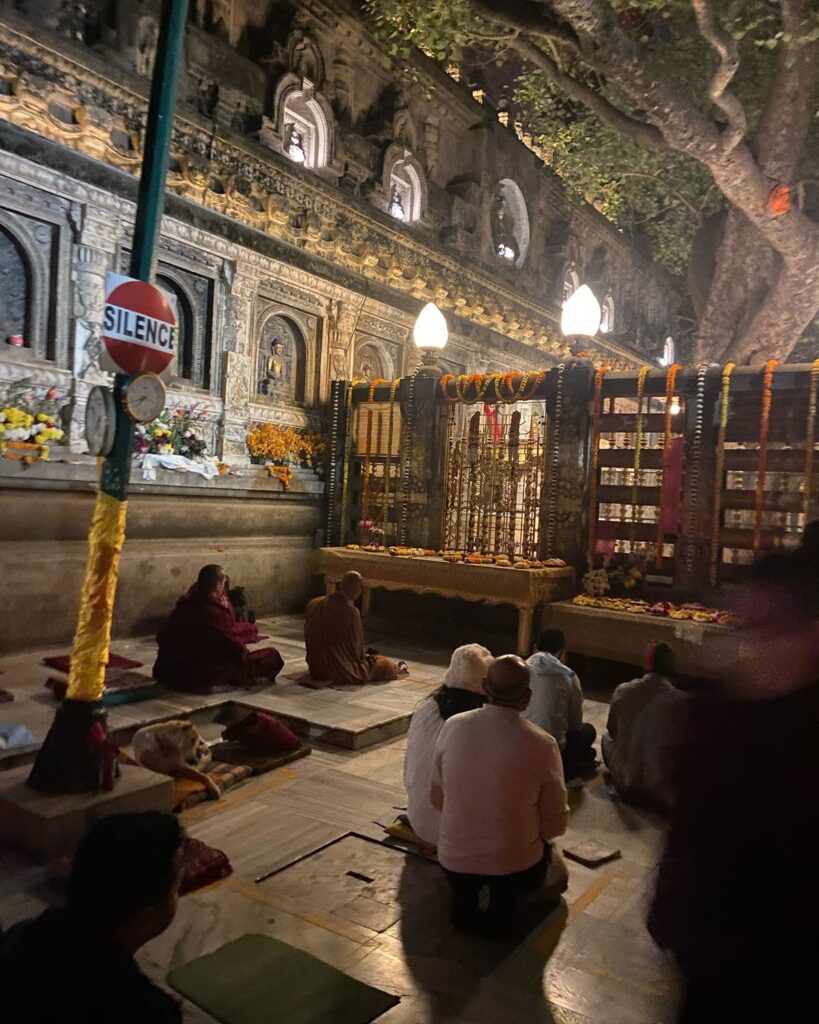
Siddhartha by Herman Hesse
While traveling these sights, I was reading the book Siddhartha by Herman Hesse. This is how the story of the Buddha relates to my spiritual journey, not just on this pilgrimage, but in life.
Siddhartha Gautama (better known as the Buddha B.C. 563 – 483 BCE) was, according to legend, a Hindu prince who renounced his position and wealth to seek enlightenment as a spiritual ascetic and attained his goal in preaching his path to others. There were similarities in my journey this past March. At first, I was disappointed at the bare accommodations. The standard of accommodations, meals, and travel were not what I was accustomed to. This reminded me of Siddhartha. He gave up his privileged life and worldly good to go on his spiritual journey. When Siddhartha met the “Illustrious One” (or the Buddha) on his journey, he decided to leave the Buddha, as well as his dear friend and travel partner, Govinda, to travel on his own to seek his own path. Several times during the pilgrimage, I did the same – I often followed my callings. Three of the most enlightening experiences I had were when I went off during free time with guides and visited other spiritual sites that were not on the itinerary. These experiences exponentially enriched my experience! Was I “enlightened” at the end of the journey? While I can’t compare myself to the Buddha, I would say the answer is YES. As the trip was nearing its end and I meditated in the exact cave in Rajgir that the Buddha meditated, I felt enlightened -free from my attachments and desires.
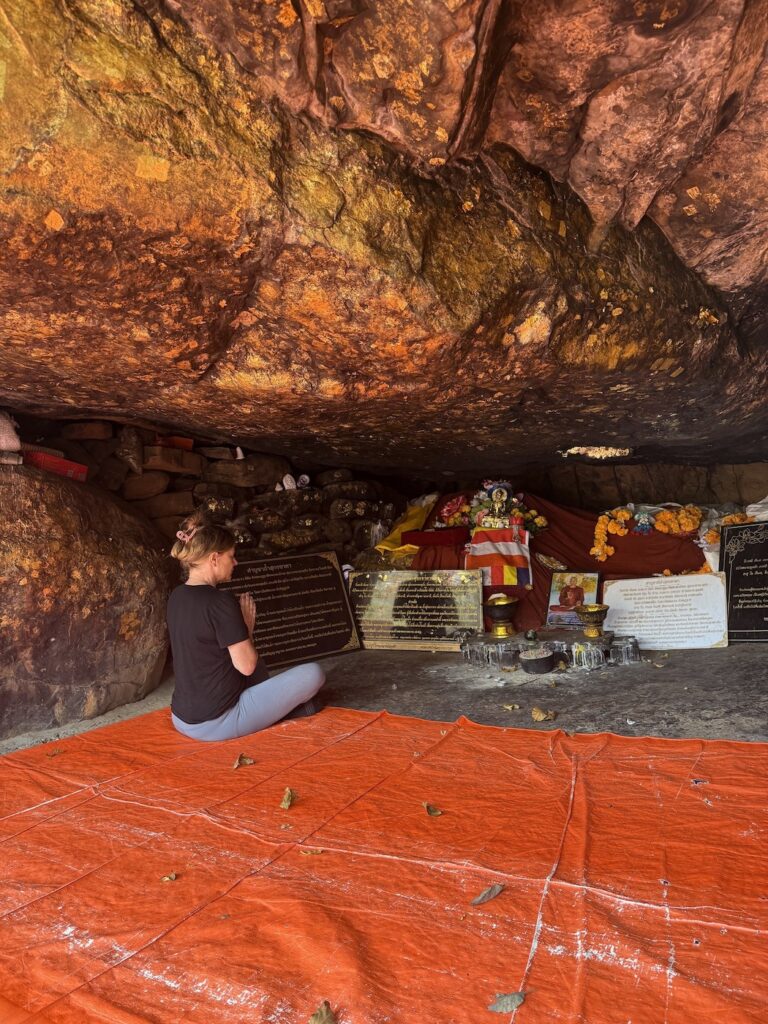
Conclusions
1.Everyone has their own spiritual path. Just because someone is on a “spiritual path,” that doesn’t make them a “decent” or “good” person. I felt as if others were “spiritually bypassing” me.
2. There is a saying: “Hurt people hurt people”. Instead of being angry at those who hurt me, I choose to be compassionate to their suffering.
In my Vipassana Meditation training, I learned about Compassion or Kaduna – it is one of the four Brahma-Viharas. While Buddhism teaches compassion, it doesn’t mean you must stay in harmful situations. Compassion includes compassion for yourself. If someone repeatedly mistreats you, it’s wise – and not selfish – to set boundaries or to remove yourself from that environment. If this person does not help you to your path to enlightenment, free yourself from him or her. This is a tenet I often struggle with but need to practice it always.
The Buddha was clear about being mindful of the company you keep. He emphasized the importance of kalyāṇa-mittatā – “spiritual friendship” – and avoiding bad influences: “An unwise friend, a person of little understanding — follow not such a one.” (Dhammapada, verse 78)
“If a traveler does not meet with one who is his better or his equal, let him firmly keep to a solitary journey; there is no companionship with a fool.” — Dhammapada 61
So while the Buddha says it’s ok to not be where you are not treated well, and I need to remove myself from people who don’t treat me well, I can pray for them and practice the vipassana tenet of Metta, or loving kindness—
I wish you all Metta —loving kindness –
May you be safe
May you be well
May you be free from suffering
May you be healthy
May you be happy
3. We spent six days in Dharamshala – home of the 14th Dalai Lama. We visited The Tibet Museum. Below are quotes by the Dalai Lama taken directly from the exhibit on the Tibet Museum that most resonated with me:
What is the purpose of life?
The purpose of life is to be happy, happiness derived from material things is temporary. We should look for inner happiness by being honest and truthful. In order to lead a meaningful life, you need to cherish others, pay attention to human values and try to cultivate inner peace.
What is inner peace?
To have peace of mind is to be completely relaxed on a physical and mental level. If something negative occurs and you are sufficiently at ease, you will be able to look at it from a broader perspective, you may be able to see some positive side to it and this brings inner strength, reduces fear and anxiety.
Why are our enemies our best teachers?
For compassion to develop, we must wait for difficulties to arise and then attempt to practice it. And who creates such opportunities? Not our friends, of course, but our enemies. They are the ones who give us the most trouble. So if we truly wish to learn, we should consider our enemies our best teachers!
4. And to bring it back to my AA program – in the words of my wise sponsor, “I hear your pain, Lisa. Your HP (higher power) sure is giving you an opportunity for growth. Never our timing. Pray for grace – what an opportunity to hunker down on your faith knowing you are a child of God, you are loved, you choose a right life. Lean into your God, hold your head high, and remember, when you are right with your God, what other people think of you is not your business. Find comfort in that truth and then the sick man’s prayer, acceptance, and service. Use your tools. You WILL find comfort.”
Sick Man’s Prayer
God, when a person offends me, help me to remember this is a sick person.
Help me show the same tolerance, pity, and patience that we would cheerfully grant a sick friend.
Show me how can I help them.
Save me from being angry.
Thy will be done.
